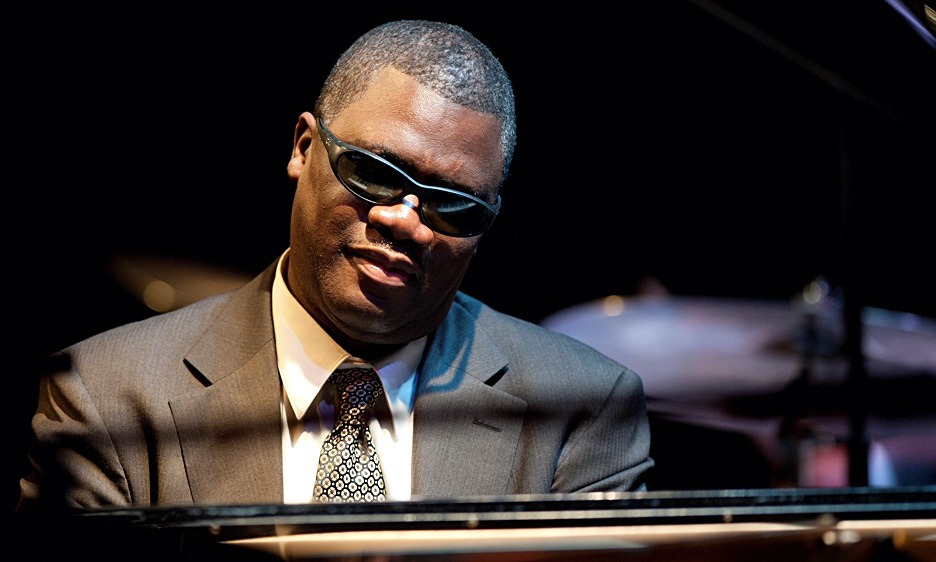Finding solutions in today's chaotic world using the wisdom of The J Master
Pianist Marcus Roberts told me a story about how he deals with problems on the bandstand that can serve as a guiding principle for how we deal with the problems we are facing today.

Today we are facing a multitude of problems on multiple fronts. From the existential threat of COVID-19 and the social and economic devastation being left in its wake, to the never ending fight for social justice and equality - individually and collectively we are reckoning with problems and no apparent solutions seem to be on the horizon.
As I think about all that I am facing in my own personal life, in my family, in my city (Louisville, KY), in our country and the world at large, I find myself sometimes becoming overwhelmed.
What is going on?
What is the answer?
What can we do?
What can I do?
Recently, I remembered a conversation I had with a dear friend and colleague some years ago. As I thought about him and that conversation, I found solace and some answers in the story that he told me that day.
The life lesson that I learned from him was so transformative that it has completely changed the way that I think about our current state of affairs.
Marthaniel “Marcus” Roberts AKA “The J Master” is one of the greatest pianists on the planet, bar none. He has played in various bands and configurations of different sizes over the course of his career. He is a jazz musician, and as such, when he is on the bandstand, he is actively engaged in a discourse with his fellow musicians. They are constantly negotiating the tension between the expression of their individual selves with their responsibility to the collective - the overall sound of the group.
Some believe that this engagement is one of the purest expressions of democracy in action.
Although it may not seem like it, this discourse and negotiation is taking place all the time, in real-time. Band members are simultaneously walking a tight rope, as they try their best to settle into a tempo, a rhythm, a form and a sound that can serve as a foundation or even a safety net for their own individual improvisational expressions.
In the negotiation of these elements some band members, particularly the drummer and bassist may have an inordinate amount of sway over certain elements - like rhythm and tempo. But, if the group is to function as a group, and optimize its sound accordingly, all members must be willing to be a part of the discourse instead of just imposing their individual wills on each other. They must show constraint. They shouldn’t impose their wills on the group simply because they can do so and get away with it.
In this constant negotiation, discourse and dialogue, the band members are not only communicating with each other using their instruments, but there is a also a great deal of non-verbal communication that takes place on the bandstand in the form of cues, nods, glances, stares, etc.
Marcus is blind, and as a result, he is not privy to these non-verbal cues. So he is often left out of a lot of essential communication that the band utilizes as they strive to achieve their optimal collective sound.
When he told me how he dealt with this, I was absolutely blown away.
“Because I can’t get the visual cues,” he said. “Whenever something goes wrong on the bandstand, I assume that it’s my fault and I immediately take corrective measures.”
There are three life lessons that I learned from his very profound statement, that all of us can use as we face the problems of the world today:
1) When we are a part of a group and the group is suffering in some way, it’s best to be solution oriented and the solution starts with ourselves. Take personal responsibility for the problems of the group.
2) Solution orientation is best when the solution is at the forefront of our minds instead of blame. Don’t play the blame game.
3) When we are proactive in trying to find a solution, even if we may not be actually contributing to the problem, it makes it more likely that others will follow us in trying to find a solution. Lead proactively and others will follow.
Let’s face it, we are all in multiple bands on several bandstands actively negotiating the tension between our own identities, proclivities and desires against that of the collective or group.
Much of this is taking place out in the open in front of society (the audience).
Optimization of the collective is only possible when individuals are willing to sacrifice part of themselves for the group. But more importantly, the answers to many of society’s problems can be best found when we all proactively decide to be part of the solution, even if we don’t think we’re part of the problem.

